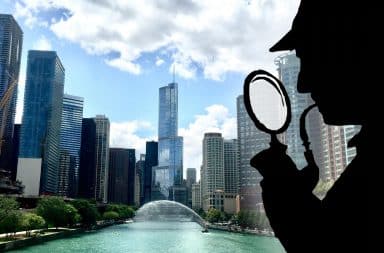It has come to my attention that my most recent artistic endeavor may have upset some people. Ruffled some feathers. Disrupted the “politically correct” status quo. As a creative type, I, a straight, white, cis man, feel the need to respond to these comments, not because I agree with them, but because I want to tell my side of the story.
Specifically, the fact that I am in the right and all my critics are in the wrong because, dear readers, my work is a satire.
For me, satire is more than a literary genre. It’s the freedom to say whatever I want and then not be accountable for any of it because I followed it with, “I’m just kidding.” Satire erases all social, cultural, and political context until everything just exists in a vacuum that allows me to make fun of historically oppressed groups without any punishment. Like, do you know The Daily Show? It’s exactly like that, instead of having a room of socially conscious and politically aware writers, it’s just me in my bedroom watching South Park. Honestly, I’m not sure why this is so hard for people to understand.
A lot of people think my work is offensive because it contains derogatory language and outdated stereotypes, but what no one seems to understand is that my work is a piece of cultural criticism. It’s not overtly malicious, it’s artistic. It’s not grossly insulting. It’s a social commentary. In fact, I believe that blindly labeling something as “social commentary” means I should never have to face any criticism for it. And furthermore, it means that my critics are big dumb idiots who just aren’t smart enough to get my message.
It’s not that I believe these explicitly offensive things about women and minorities. I’m just pointing them out! Mocking them! I’m making fun of the people who actually think these things by keeping their toxic opinions alive, and representing their horrid beliefs in a way that normalizes them. Truly I don’t understand why people get so touchy when you make fun of their suffering. It’s all just a joke—except for the people who actually experience racism, sexism, or homophobia in which case it is real life—but in my piece, it’s a joke.
Would it be more effective to just have diverse art and give representation to those who have historically been shut out of the industry? I don’t think so. I cannot imagine it would be any more socially enlightening than the egregious number of insults my characters use when referring to women. Who knows the intricate social systems that oppress and ostracise millions of people better than me, someone who benefits from, and even contributes to, all of those unequal systems?
I believe that satire is about claiming to make a broader social commentary by using abhorrent stereotypes and tropes. Satire mocks the person who has never had to deal with injustice based on their race, gender, or sexuality but does so by mocking other people based on their race, gender, or sexuality. It’s not punching down, it’s punching up! It just happens to be punching up in a way that looks exactly like punching down, but with the word “satire” slapped on it after it gets called out for being wildly insulting.
For me, it’s simple. Satire is being unapologetically offensive for no apparent reason and refusing to acknowledge the harmful social and political implications of your own work. Satire is making fun of people and not having to deal with any of the consequences. Satire is never having to say you’re sorry.


